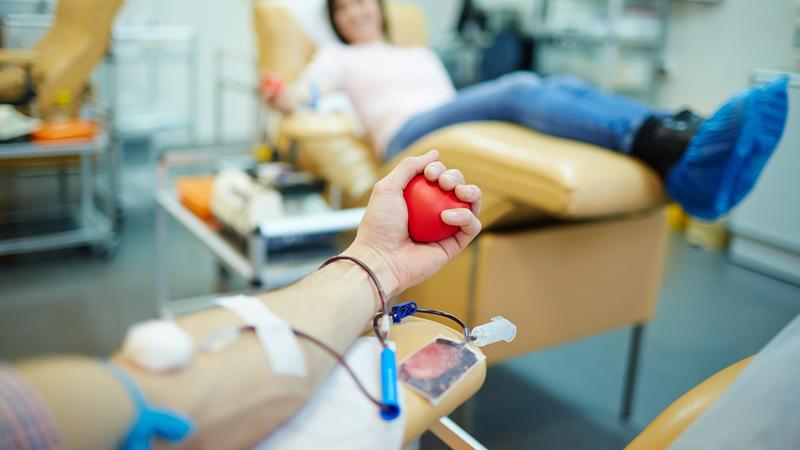Do You Know What Your Blood Type Is? It Could Mean Life or Death!
Long before DNA blood tests, the most information scientists, doctors and police knew about our blood was our blood types. Although we don’t hear that much about it these days, blood types are still very important, especially if you need a blood transfusion.
Knowing that, do you know what your blood type is and whether or not it matters?
According to the American Red Cross, there are 8 basic blood types and it is based upon the presence of antigens located on the surface of your red blood cells. The antigens are known as A and B, and this determines 4 of the basic blood type groups – A, B, AB (where both antigens are present) and O, (where neither antigen is present).
The second typing factor is based on the presence or absence of a protein known as Rh factor. If the Rh factor is present, the blood type is positive (+), and if it is not present, the blood type is negative (-), making up the other 4 blood type groups.
Here are the 8 basic blood type groups and what percentage of 4 ethnic groups have each blood type:
1) A-positive – Asian – 27%; Black American – 24%; Caucasian – 33%; Latin American – 29%
2) A-negative – Asian – 0.5%; Black American – 2%; Caucasian – 7%; Latin American – 2%
3) B-positive – Asian – 25%; Black American – 18%; Caucasian – 9%; Latin American – 9%
4) B-negative – Asian – 0.4%; Black American – 1%; Caucasian – 2%; Latin American – 1%
5) AB-positive – Asian – 7%; Black American – 4%; Caucasian – 3%; Latin American – 2%
6) AB-negative – Asian – 0.1%; Black American – 0.3%; Caucasian – 1%; Latin American – 0.2%
7) O-positive – Asian – 39%; Black American – 47%; Caucasian – 37%; Latin American – 53%
8) O-negative – Asian – 1%; Black American – 4%; Caucasian – 8%; and Latin American – 4%
So, what’s the big deal about blood types?
If you get a blood transfusion and the blood they give you is not the same type as yours, the results are often fatal due to massive rejection of the blood. People with type O negative blood are considered to be universal donors and can donate to anyone. A person with type AB blood is considered to be a universal recipient as they can receive blood from any blood type.
Knowing your blood type is also important if you need an organ transplant or want to donate a kidney or part of your liver to someone else. Again, the blood types of the organ donors and recipients have to match or the organ will be rejected.
If you are pregnant, it is also good to know what your blood type and the blood type of your spouse. It’s best if both parents have the same Rh factor. If not, the combination of a Rh positive and Rh negative can prove harmful to the baby and even the mother, due to a condition known as Rh incompatibility. If you want to learn about Rh incompatibility, you can do by clicking here.
So, while you don’t hear much about blood types these days, it’s still very important to know because you never know when it could mean the difference between life and death for you or someone else.









Recent Comments